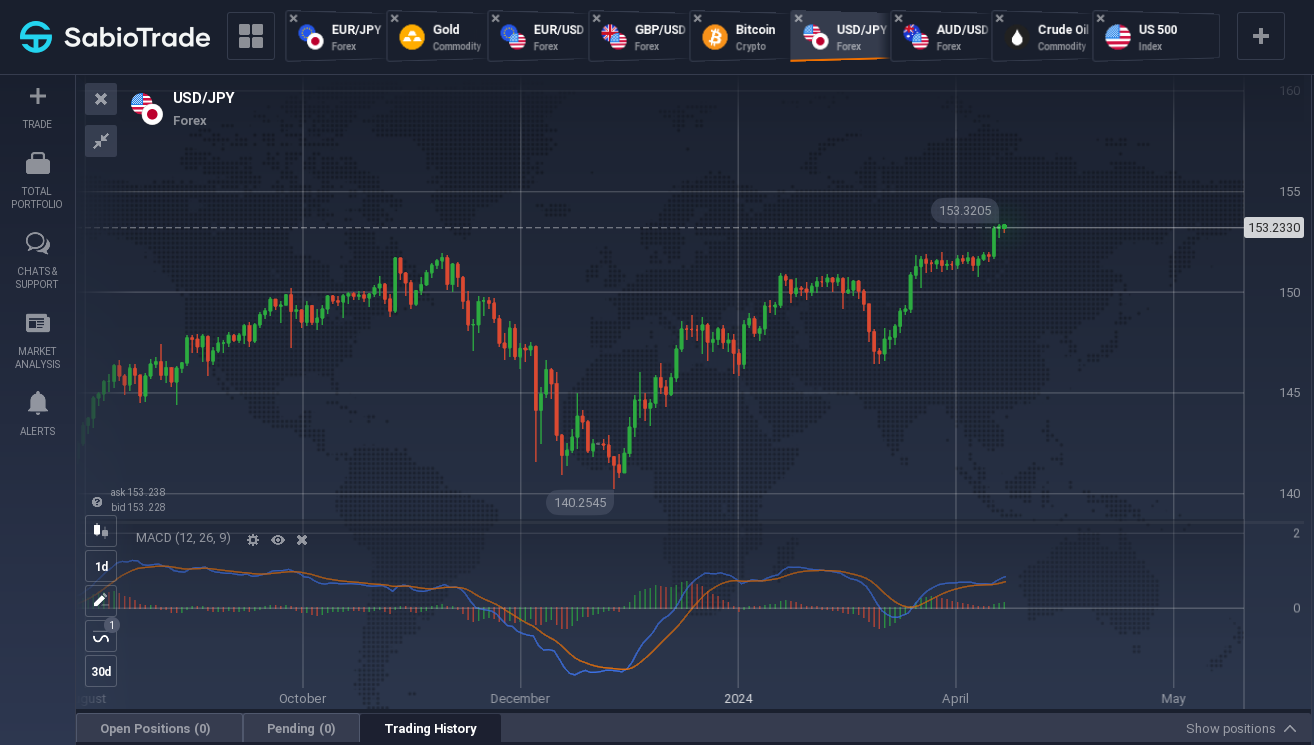Yen Declines and Currency Fluctuations: Insights from Japan's Finance Minister



Japanese Finance Minister Shunichi Suzuki addressed the recent declines in the yen, emphasizing the authorities’ analysis of the underlying factors and their readiness to respond to excessive currency fluctuations. Ahead of the Group of 20 (G20) meeting in Washington D.C., Suzuki mentioned the potential discussion of currency movements among finance leaders, acknowledging the impact of a weak yen on inflation and consumers while highlighting the importance of stable exchange rates reflecting economic fundamentals.
After hitting a fresh 34-year high of 153.32 yen overnight, the dollar stood at 153.18 yen in Asia on Friday. The Japanese currency has tumbled almost 8% against the dollar since the beginning of the year.
Despite concerns over currency depreciation, Suzuki refrained from escalating warnings of decisive action, opting instead for coordinated efforts with top currency diplomat Masato Kanda to manage yen movements. The widening yield gap between the U.S. and Japan was cited as a contributing factor to the yen’s weakness, alongside various other economic indicators and market sentiments.
The prolonged decline of the yen has posed challenges for Japanese policymakers, impacting household spending and complicating the Bank of Japan’s considerations regarding interest rate hikes. While the Bank of Japan stated it wouldn’t directly respond to currency moves, Governor Kazuo Ueda noted the possibility of intervention if yen fluctuations significantly affect the economy and prices. The last intervention in the currency market occurred in 2022, reflecting Tokyo’s efforts to stabilize the yen’s value.